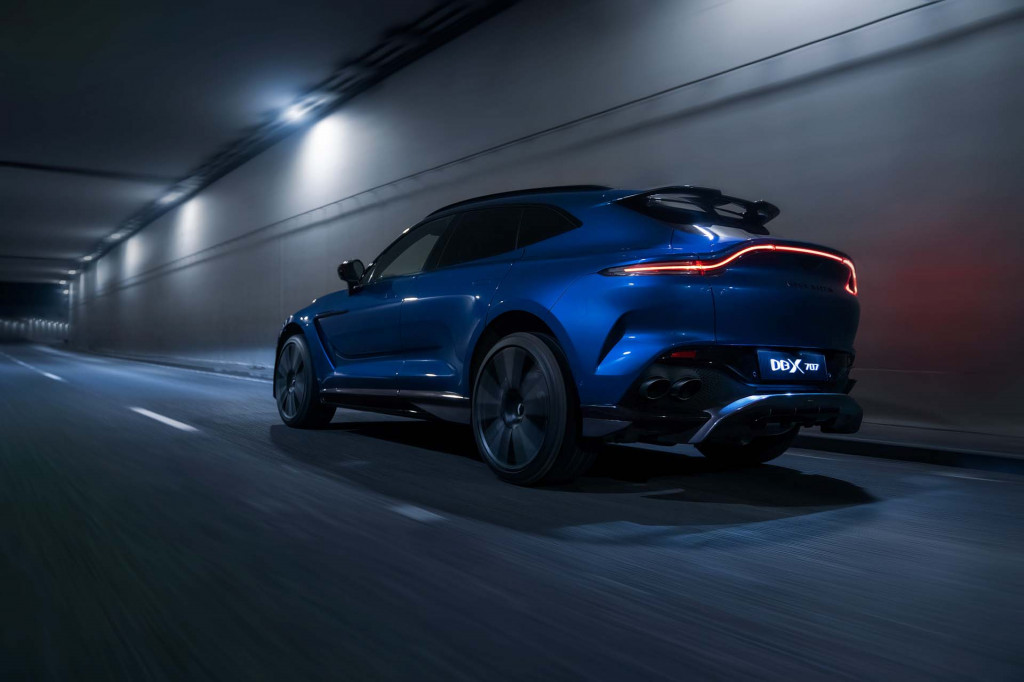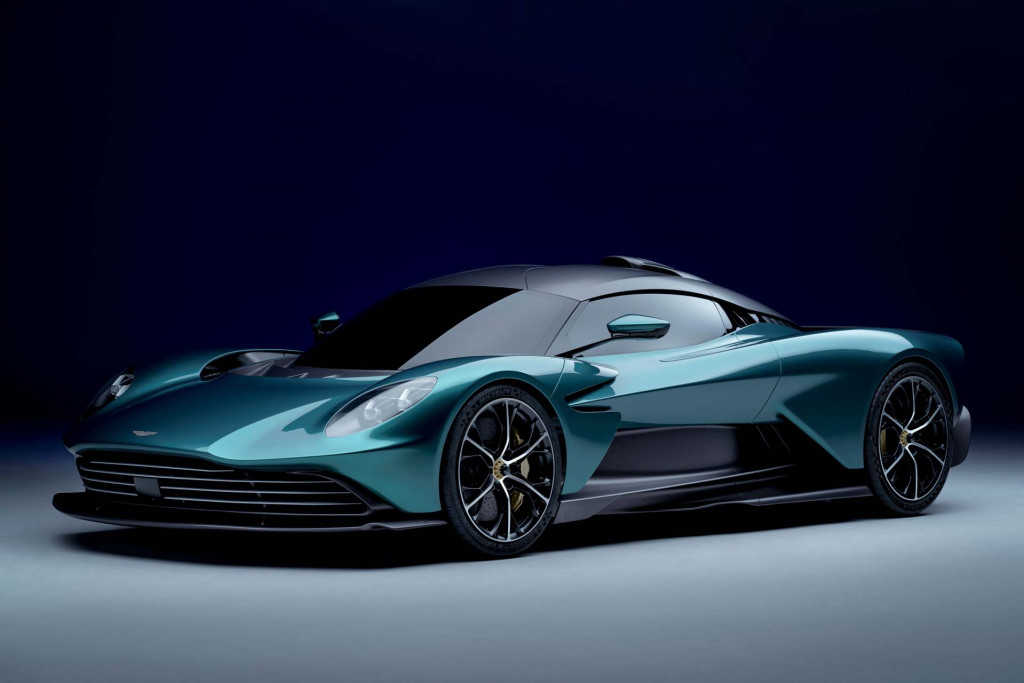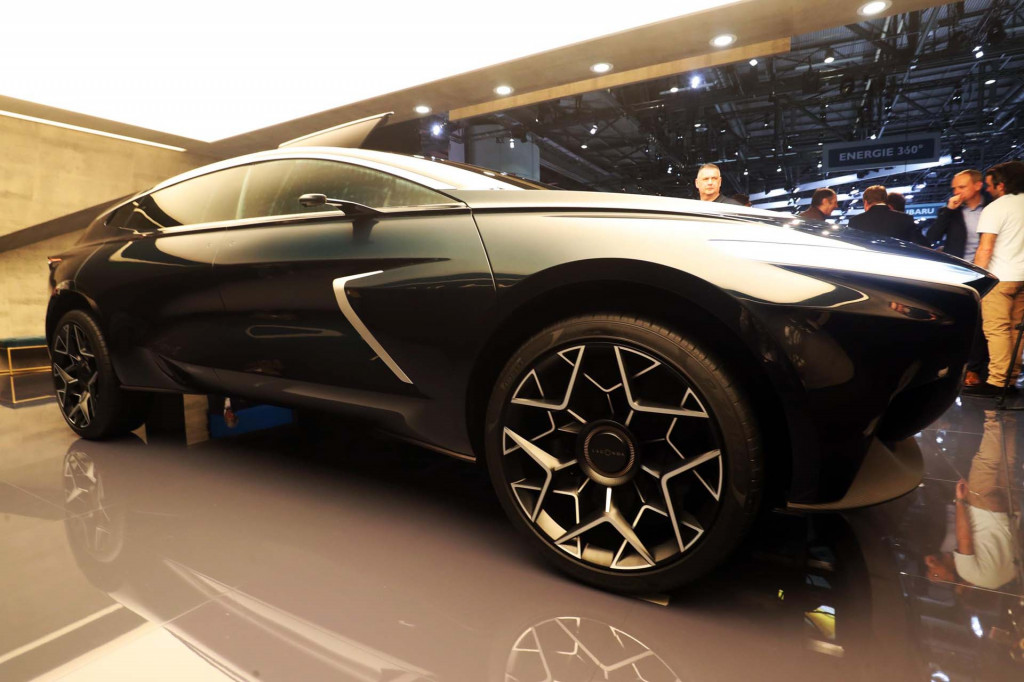The V-12 engine is dead at BMW, but it's alive and well at Aston Martin, according to CEO Tobias Moers.
"Why should I get rid of the V-12 for the time being?," the CEO told Motor Authority in a roundtable that covered a variety of topics. Aston Martin will sell vehicles with a V-12 under the hood until probably 2026 or 2027, according to the executive.
The deciding factor for the V-12's phaseout will be regulations. Specifically, EU7, which Moers noted hasn't been finalized, yet.

2023 Aston Martin DBX707
While the twin-turbo V-8 that just debuted in the DBX707 has similar output as Aston's V-12, Moers said the V-12 will still go in new releases. "There's still room for a V-12 in this sports car generation," Moers said in reference to the V12 Vantage, which is set to debut soon.
The DBX SUV isn't getting a V-12. It's simply not in the plan because it wouldn't fit well. The extra cylinders paired with the transfer case for the all-wheel-drive system would make the powertrain too long and throw off the weight balance. But the 707 model isn't the end for the DBX in terms of performance.
Moers said a plug-in hybrid is likely coming in the second half of the current DBX's lifecycle, around 2024. The system will be cribbed from the Mercedes-Benz AMG parts bin, Moers' old stomping grounds, with the automaker's E-Performance Hybrid powertrain. Moers said it's the only possible choice to electrify the DBX in its current lifecycle. An electric motor can fit within the DBX's rear end packaging, but to go all-electric would require a new platform.
Moers noted that eventually every vehicle will require some level of electrification, but there's time. Some countries will begin banning the internal combustion engine after 2030. The real game changer will be the EU7 standards, which will likely require lowering output, adding electrification to retain performance, or developing new, more efficient internal combustion engine technology. Moers mentioned pre-chamber combustion, but also noted that simply downsizing displacement and increasing boost creates a new issue: running engines more rich. "It's all complicated," he said. The V-12 won't be re-engineered and the path to electrification is clear for the luxury segment.
While a new V-12 isn't in the cards, work won't stop on the current engine. Changes to the engine in the upcoming V12 Vantage will show where the V-12 is going, and where the DBS could go with a higher performance variant down the road, according to Moers.

Aston Martin Valhalla
Moers also had news on the brand's ambitious, but delayed, lineup of new supercars. He noted the rebooted mid-engine Valhalla, with its flat-plane crank V-8 and electrified powertrain, is now on track for 2024. That's slightly behind the previous second half of 2023 timeline. The battery is coming from AMG, but the gearbox is being developed in-house at Aston and that takes time. While the Valhalla's platform will initially feature an electric motor on the front axle, it's capable of using two motors up front.
The mid-engine Vanquish will appear in 2025 and share the Valhalla's AMG Black Series engine and platform.
The second half of the current DBX's lifecycle could also see a collaboration with Zagato for a bespoke body, but Moers wouldn't elaborate.
A smaller crossover SUV to slot under the DBX won't happen, and a long-wheelbase DBX "isn't the right arena, so we're leaving that to others," Moers said.

Lagonda All-Terrain Concept
The Lagonda All-Terrain SUV concept from 2019 that was supposed to arrive in 2022 won't happen, either. The nameplate is going nowhere despite the recent concepts. The Lagonda name will be kept on the sideline as Moers said the brand would need a clear future.
A "next level sports car" is coming from Aston Martin next year, likely meaning a version of one of the current DB11-based models. Moers said this car will kick off the connected car era for the automaker and launch its new infotainment system, which is being designed in house. Aston Martin currently uses Mercedes-Benz's last-gen infotainment system with a touchpad.
As for a full electric Aston Martin, that will arrive in 2025, but that's all Moers would say.
